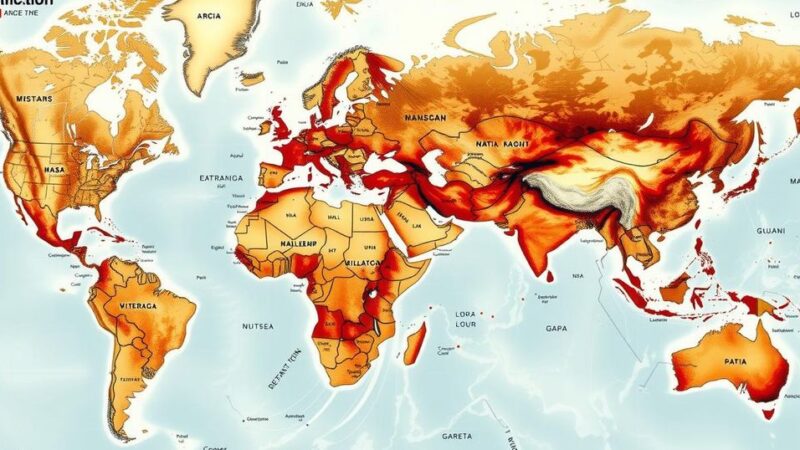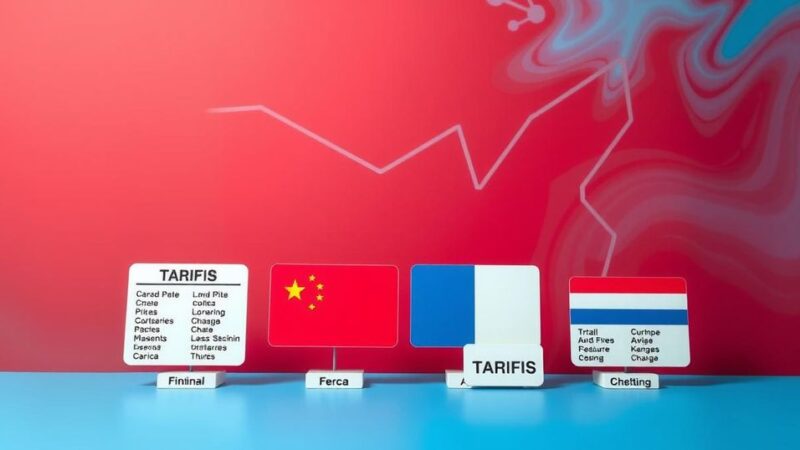The relationship between Ethiopia and Eritrea is characterized by a history of conflict and recent efforts toward cooperation. The 2018 peace agreement marked a significant shift, yet deep-rooted issues persist. Factors influencing these relations include colonial legacies, power struggles, and unresolved territorial disputes. Constructive dialogue and mutual understanding are essential for sustainable relations, while the international community can play a supportive role in fostering peace and cooperation.
Ethiopia and Eritrea have a multifaceted history, marked by both conflict and cooperation. Their relations have faced significant challenges, particularly evident during the Eritrean War of Independence (1961–1991) and the Eritrean-Ethiopian War (1998–2000). A notable shift occurred in 2018 with the signing of a peace agreement, which concluded a long-standing stalemate and marked the beginning of a new era of cooperation, largely driven by Ethiopian Prime Minister Abiy Ahmed’s reforms.
Post-agreement, the two nations experienced a thawing of relations, characterized by the reopening of borders, resumption of flights, re-establishment of telecommunications, and the reopening of diplomatic missions. Efforts were also made to foster people-to-people connections, enabling families separated by the border to reunite and promoting a spirit of reconciliation.
This article offers an analysis of the forces impacting Ethiopia-Eritrea relations today. These influences stem from a combination of historical colonial legacies and contemporary power dynamics among political entities in both nations. Such factors have created barriers to building a sustainable partnership, as entrenched narratives and territorial disputes persist.
Colonial history has left a legacy of territorial divisions and social segregation, obstructing cooperation between Ethiopia and Eritrea. Moreover, negative narratives continue to shape public memory, fueling distrust and division. These sentiments have been exacerbated by earlier political decisions, such as the forced annexation of Eritrea during Emperor Haile Selassie’s rule, which exacerbated ethnic and territorial tensions.
The Derg regime further inherited this conflict, intensifying the struggle and contributing to the long-term animosity that exists today. In the wake of Eritrea’s independence, relations were largely characterized by competing interests and deep-seated mistrust, incapable of fostering productive collaboration. The lack of strategic agreements during Eritrea’s rush to independence led to unresolved issues that heightened tensions, culminating in the border war between 1998 and 2000.
Ethiopia’s quest for access to the Red Sea remains a contentious issue, given that it has been landlocked since Eritrea’s independence. Ethiopian leaders have consistently sought to secure this vital economic and strategic route, emphasizing the importance of Red Sea access for national interests. Recent diplomatic efforts have pivoted towards Somalia and Somaliland, indicating a strategic shift away from Eritrea despite its historical claims to the region.
The 2018 peace agreement was pivotal in transitioning from decades of conflict to a pathway toward cooperation, enabling opportunities for both countries. However, the signing of the Pretoria Peace Agreement in November 2022 signified new challenges, particularly regarding Ethiopia’s internal political dynamics and President Isaias Afwerki’s apparent dissatisfaction with developments therein.
Looking forward, both nations must navigate their historical legacies and conflicting national aspirations. Engaging in constructive dialogue and prioritizing mutual benefits can alleviate tensions and foster sustainable peace. The responsibility does not solely lie with leadership; citizens of both nations must advocate for peaceful solutions, learning from past conflicts to avoid future violence.
The international community, including the African Union and the United Nations, can assist in healing historical wounds. Academic research on sustainable peace can also inform policies that promote cooperation in the Horn of Africa, marking a significant step towards long-term stability.
Ethiopia and Eritrea’s relationship is entrenched in a complex historical context that informs current dynamics. The peace agreement of 2018 marked a significant turn toward cooperation, yet underlying issues stemming from colonial history and territorial disputes continue to hinder progress. Moving forward, fostering a cooperative relationship necessitates inclusive dialogue and addressing mutual concerns regarding critical issues such as Red Sea access. Ultimately, the collective responsibility of both nations’ citizens, alongside supportive international engagement, is vital in paving the way for lasting peace and development in the region.
Original Source: addisstandard.com






